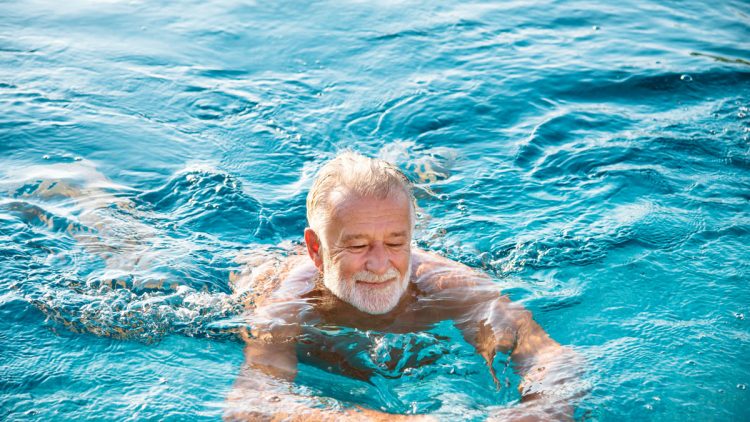Types Of Exercise for People with Dementia
Local community or sports centers usually provide an assortment of organized exercise and physical activity sessions, like seated exercises, ball games, dance and music, indoor bowls, or indoor/ outdoor swimming. You might be able to use a personalized budget, in a type of a direct payment from your city council for paying for these. Many of the below activities can be altered and carried out at home. Briskly walking, gardening, and housework are also good types of day-to-day physical activity.
Those in the early stages of dementia might experience no new challenges in sports and other physical activities they appreciate. They should be urged to continue these activities when possible.
What is the proper amount of activity in the beginning to middle stages of dementia?
There is no conclusive answer to this question and the proper amount of exercise is going to vary by individual. The Department of Health suggests one hundred and fifty minutes of somewhat strenuous physical activity each week. This equals to thirty minutes of activity each day, for at a minimum of five days a week. This can be broken up into smaller sessions during the day, with each session lasting a least ten minutes. For instance, it might be a brisk fifteen-minute walk to the local thrift store, and then gardening duties or housework later in the day.
Kinds of exercise for those with dementia
Below are some instances of the kinds of exercise that a person may carry out. This is in no way a comprehensive list – any kind of exercise is beneficial.
Gardening
Gardening is a physical activity that offers the chance to get outside and is enjoyed by a lot of individuals. The activity degree can be diverse to fit someone’s abilities. It might be something that requires less effort such as weeding or pruning, or a more laborious activity such as raking or mowing the lawn. These activities can help firm up the body’s muscles and strengthen breathing. Gardening can be a pleasant activity for individuals at every stage of dementia.
Indoor bowling
Some individuals could keep their bowling talents or continue to take part in other ball games, and so might appreciate indoor carpet bowling. Many local recreation centers provide indoor bowling sessions, or sets can be bought at toy or sports outlets.
Dance
Dancing may vary from tea dancing and couple or group meetings to more improvised movement including ribbons, balls, or balloons. Dancing can also be carried out in seated positions. This is a very social activity and an enjoyable way to participate in exercise. Dancing can increase strength and flexibility, assist with staying balanced and nimble, and decreases stress.
Seated exercises
Those suffering dementia can benefit from a routine program of seated exercises at home or with a class at a local course. It is usually wise to see these exercises shown at least once by an instructor or through a video. These exercises are intended at building or fostering muscle strength and balance and are less demanding than exercises in standing positions. They can be part of a growing program, with the number of repetitions of each exercise increasing over time. Some instance of seated exercises can comprise of:
- making circles with the arms
- raising the arms upwards to the ceiling
- marching
- practicing moving from sitting to standing.
- bicycling the legs
- bending the legs
- raising opposite arms and legs
- clapping under the legs
- raising the heels and toes
- turning the upper body to and fro
Swimming
Swimming, through supervision, is a perfect activity for those with dementia. A lot of individuals find the sensation of being in the water comforting and calming. Many studies have shown that swimming can improve balance and decrease the risk of falls in the elderly.
Walking
Walking suits all capabilities. It’s totally free, does not require special equipment, and can be done anyplace. The distance and time taking walking can be differed to suit fitness degrees. Some local recreational centers and other organizations plan group walks, assisted by a walk leader, of differing lengths, so it can also be a good social activity.
About Ventana Winds
Ventana Winds Retirement Community is a member of SLS Communities and offers Assisted Living and Memory Care services In Youngtown, Arizona.
More Articles About Senior Living
- How Much Does Memory Care Cost?
- How To Talk To A Parent With Dementia
- Memory Care Facilities Near Me
- Best Golf Clubs For Seniors
- Questions For Assisted Living Interviews
- How To Look Younger At 50
- Retirement Party Ideas
- Can I Retire At 60 With 500K?
- Retire In Youngtown AZ
- Retirement Wishes – 100 Quotes Continued
- Assisted Living vs Memory Care
- Retirement Wishes For A Boss
- Is It Possible To Retire Early At Age 30, Age 40, or Age 50
- Differences Between Independent Living Vs Assisted Living
- Senior Living Youngtown
- How Much Does Assisted Living Cost In Youngtown, Arizona?
- Best Places To Retire In Youngtown Arizona
- Assisted Living Peoria
- What Is Memory Care? The Difference Between Alzheimer’s and Dementia.
- What is Assisted Living?
- What is Arthritis?
- Benefits of Assisted Living
- What is Memory Care?
- Senior Retirement Living Options
- Checklist For Assisted Living
- Best Place To Retire In Sun City Arizona
- Can The IRS Seize My Retirement Money?

